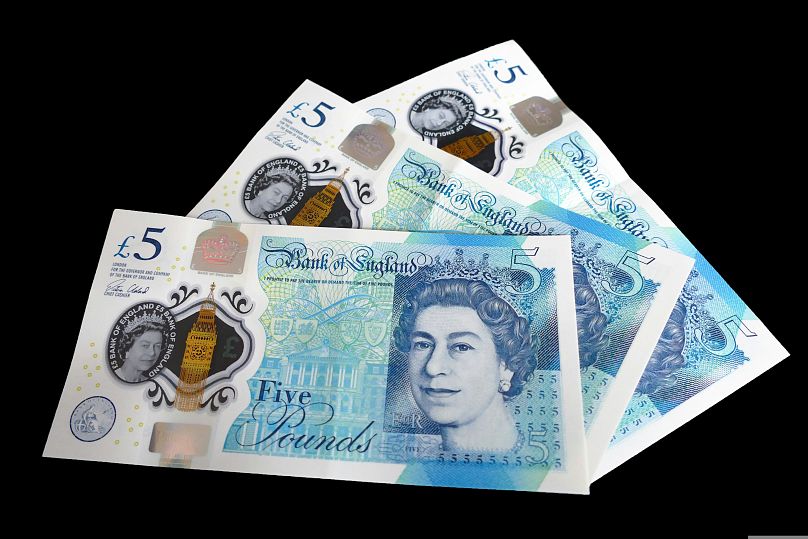Cash no longer king – how Britain makes a mint from cards
The Treasury is making a mint from Britain’s increasingly cash-free society.
One of the surprise findings of the recent UK Budget was that the country’s increasing removal of cash has given the Treasury a boost of £12 billion.
That is because it is becoming harder for smaller organisations and businesses to avoid paying Value Added Tax (VAT).
For example, a tradesperson such as a builder, plumber or electrician would traditionally submit a price for their work with VAT added on, as the government requires.
Sometimes, there might be a negotiation between trader and buyer which meant the job could be done for “cash in hand” thus leaving out the additional 20% VAT, which the Treasury, the department in charge of the government’s finances, has decided is the tax that must be paid on the job.
Cash fell out of favour because of the pandemic
Richard Hughes, chairman of the Office for Budget Responsibility (OBR), explained this when quoted in The Daily Telegraph.
He said: “The death of cash has been very good for VAT receipts. The fact that people are no longer using cash has reduced the VAT gap dramatically.”
That means the amount the Treasury expects in revenue is likely to be much more in line with what is actually collects in tax, which was not always the case when cash was king.
The shift away from cash began with the COVID-19 pandemic when the fear of contagion meant that people used cards rather than cash for their purchases.
Lockdown purchases were limited in any case to essentials but many shops took on the idea with relish finding it easier to use a one-size-fits-all approach, rather than the “old school” version of pounds and pence.
Shops legally entitled to refuse to take cash
Once the pandemic was over, it was imagined that the UK would quickly get its physical currency back but that has not happened. Some shops and stores have now gone back to accepting cash but some still refuse.
A Facebook claim last year suggested: “Refusing cash in a shop is an offence. No shop or store can stop you buying with cash as it’s legal tender.”
The claim was quickly rebutted by fact checking group factcheck.org which responded: “It is legal for shops to not accept cash. Cash being legal tender has a narrow technical definition around repaying debts.”
This has since been confirmed by the British government which responded to a petition asking for it to make it unlawful for shops to refuse to accept cash.
In a statement, it said: “The government does not plan to mandate cash acceptance.
“While the government recognises the ability to transact in cash remains important to millions of people across the UK, particularly those in vulnerable groups, it remains the choice of individual businesses as to whether to accept or decline any form of payment, including cash or card. This may be based on factors such as customer preference and cost.”
That is easy to understand if the use of cards means the Treasury’s coffers are filled up more quickly than normal but, for other members of society, including the poorer ones, there may be disadvantages.
Cards not the answer for everyone
Not everyone wants to use debit or credit cards, some people prefer to use cash to budget. The UK’s personal debt was £1,836.4 billion by the end of December 2023, according to statistics from The Money Charity, and it continues to rise.
Britain’s financial services watchdog, the Financial Conduct Authority, has recently been consulting on how to ensure access to cash is preserved.
Commenting on the consultation, which concluded at the end of February, the Federation of Small Businesses said proposals to protect and widen access to cash were a “good start but could go further”.
FSB chair Martin McTague said: “A small business must be free to choose which payment options it wishes to accept, including cash. To enable this, it’s vital for the infrastructure required for cash to remain available in all areas.
“Cash access is too important to be left to innumerable individual commercial decisions which, taken together, represent a significant threat to people and businesses’ ability to withdraw, process and deposit cash.
“Cash is vital as a competitor to other forms of payment, and as a payment option when digital systems go down, or in areas with poor reception. Many vulnerable groups, from elderly people to those fleeing domestic violence, rely on being able to use cash, and it is also a key payment method for many visitors to the UK who are wary of high bank fees when paying by card.
“As a country, we need a flexible and diverse payments ecosystem that is ready for changing consumer behaviour and needs.
Some people see cash as a way of controlling spending
“The FCA should work with the Treasury to safeguard the cash ecosystem, taking a more holistic and comprehensive view of the issue. Now is the time to be ambitious, in order to build the payments infrastructure needed by small businesses and consumers now and into the future.”
Caroline Abrahams, charity director at Age UK says the views of the older generation need to be taken into account. She told Euronews: “For many older people cash makes day-to-day transactions much easier and widespread availability is essential, above all for those who are not online.
“Many older people view cash as the most reliable and straightforward way to pay for goods and services, as well as an effective means of managing their weekly budget when money is extremely tight. For others, having notes and coins in their purse or wallet helps them to stay independent and retain firm control of their finances, while also lowering their risk of being defrauded.
“While some shops no longer accept cash, it remains the second most common payment method and there’s no reason to suspect it’s disappearing any time soon. Even so, protecting the banking infrastructure is important, and the new regulations that are currently being developed can’t come soon enough. Councils and businesses may save some money by not processing cash, but it’s the digitally excluded in their communities, many of them older people, who are left paying the price.”



